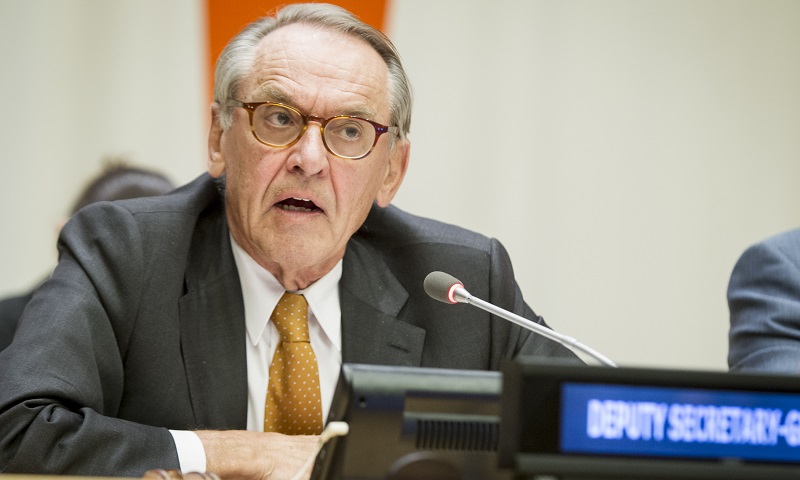
The universal inclusiveness of the 2030 Agenda for Sustainable Development is an ethical imperative, United Nations Deputy Secretary-General Jan Eliasson told a forum for UN Member States today on ethics for development.
“Fundamental principles that underpin the new goals are interdependence, universality and solidarity. They should be implemented by all segments of all societies, working together. No-one must be left behind. People who are hardest to reach should be given priority,” he said.
This is the underlying moral code of the 2030 Agenda for Sustainable Development. This demonstrates the Agenda’s profound ethical foundation.”
The Agenda, adopted unanimously by 193 Heads of State and other top leaders at a summit at UN Headquarters in New York in September, calls on all countries to achieve 17 Sustainable Development Goals (SDGs) over the next 15 years, addressing the needs of people in both developed and developing countries.
Broad and ambitious in scope, the Agenda addresses the three dimensions of sustainable development: social, economic and environmental, as well as important aspects related to peace, justice and effective institutions.
“We must discard silo-thinking, we must integrate action across different sectors,” Mr. Eliasson said. “We must be informed by those whom we seek to support and listen to their aspirations. We must pursue these ambitious goals and targets on their behalf,” he added.
To read more, please click here.
Source & Copyright: UN News Centre
 Welcome to the United Nations
Welcome to the United Nations